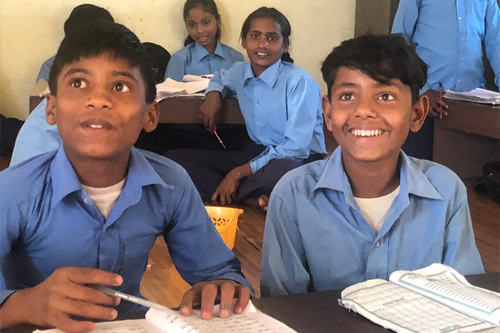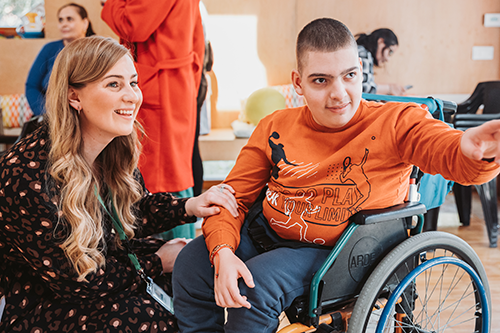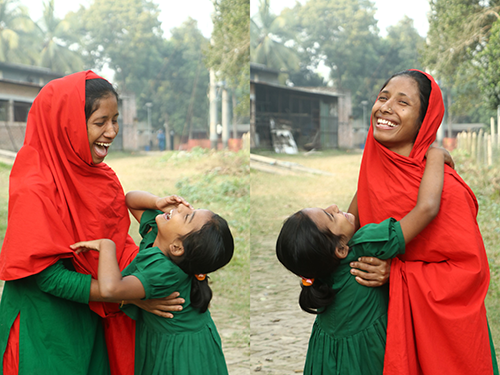International Aid and Development 2023 winners: Our Sansar
Why they won
- Outcomes: 100% of the children rescued are still in education and not working in factories
- Replicability: After a pilot involving the 20 youngest children, the programme was successfully rolled out to all 93 children identified and the charity is now investigating other factories.
- Sustainability: Our Sansar is providing rice to the value of the child’s lost income and working with each family to develop a long-term plan.
In May 2021 Our Sansar was told by local social workers in southern Nepal that children as young as six were working full-time in hazardous conditions at brick factories.
 The charity worked with an undercover investigator and filmed a news documentary which confirmed these reports. The VICE World News documentary found over 90 children working at the six factories examined, but estimates that there are probably 2,500 children working at the 162 brick factories in the district.
The charity worked with an undercover investigator and filmed a news documentary which confirmed these reports. The VICE World News documentary found over 90 children working at the six factories examined, but estimates that there are probably 2,500 children working at the 162 brick factories in the district.
Most of the children are from Dalit castes that suffer huge discrimination, and nine in 10 of the child workers did not attend school. Our Sansar staff worked with each child and their family on an individual basis to understand the circumstances that led the child to be working, and plan a solution that would involve all relevant stakeholders and be sustainable.
Key to the success of the programme is getting the children into education. Our Sansar designed a special curriculum that focuses on literacy and numeracy skills, with classes being fun and interactive – very different to the usual teaching style in Nepalese schools. None of the children that the charity has assisted through the project have gone back to work and there is 100% school attendance.
The pilot project for the youngest 20 children started at the end of April 2022, and by January 2023 it had been extended to the rest of the 93 children. This has put an end to child labour in some factories.
The charity also replaced the income that the children would have generated for their families with rice to the same value, because without this the children would not be able to attend school. And it is now working on sustainable plans with all the families, such as helping them to set up small businesses, to ensure that the parents will not rely on the charity’s support in the long term.
It also created a Child Labour Free Campaign – a certification for companies that stop employing children. The main factory owner who is now a ward president has now signed up to the Child Labour Free Campaign and is assisting the charity to get the other factories on board too.
CC Reg no. 1132124
Highly Commended
Hospices of Hope
After the collapse of communism in Eastern Europe in the late 1980s, it became clear that terminally ill people were being left to die without pain relief or specialist support. When Hospices of Hope’s founder witnessed people’s suffering, he organised a palliative care conference in Brasov and then registered the first Anglo-Romanian charity and hospice. Today, palliative care is integrated into the Romanian medical system, with more than 100 services operating. In time, it became clear that surrounding countries also lacked services, and so Hospices of Hope expanded its work to Serbia, Moldova, Albania, Greece, and Ukraine. Over 30 years, Hospices of Hope has raised more than £40m, trained more than 25,000 local staff and cared for more than 80,000 patients and their families.
Sreepur Village Bangladesh
Sreepur Village Bangladesh works to transform the lives of single mothers and children in Bangladesh who are escaping climate-related poverty and abuse. Every year the charity in northern Bangladesh provides around 500 single mothers and their children with long-term support, including housing, healthcare, education and vocational skills. Each family can live on-site in the village for up to three years and since 1989 the charity has provided long-term support to over 8,000 single mothers and children. It also runs an outreach and support project for those living in remote river basin communities and recently developed an app that it hopes will reach an additional 10,000 impoverished women across Bangladesh every year.



